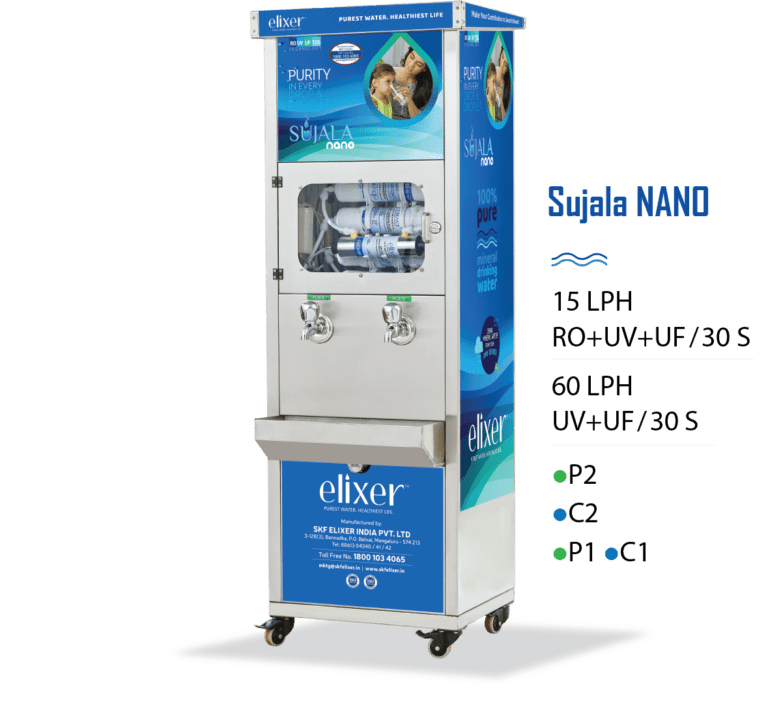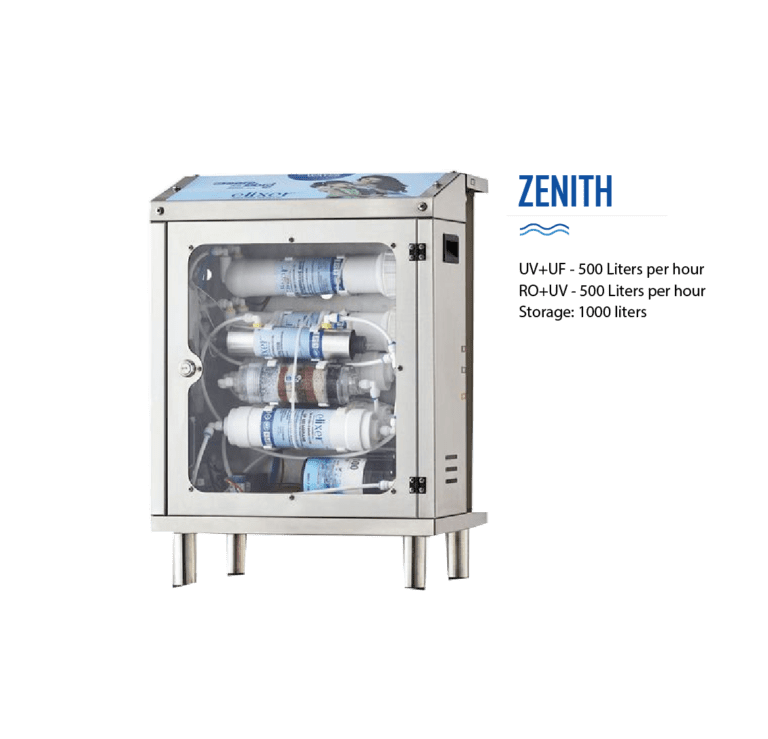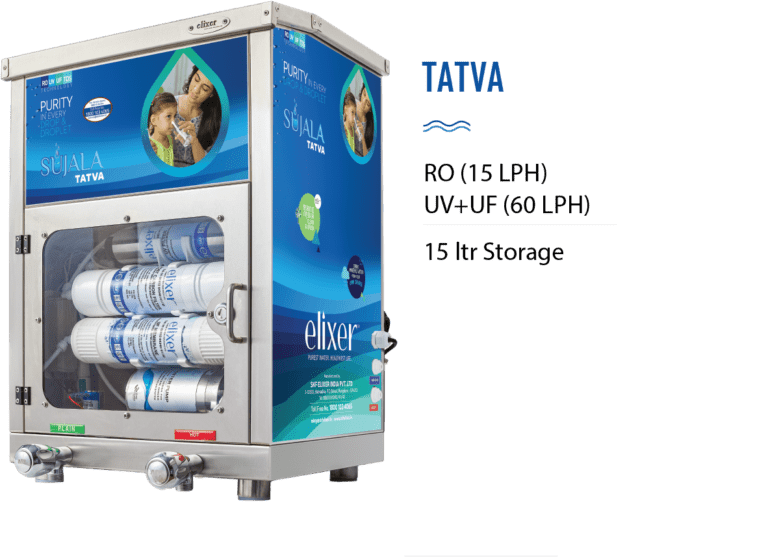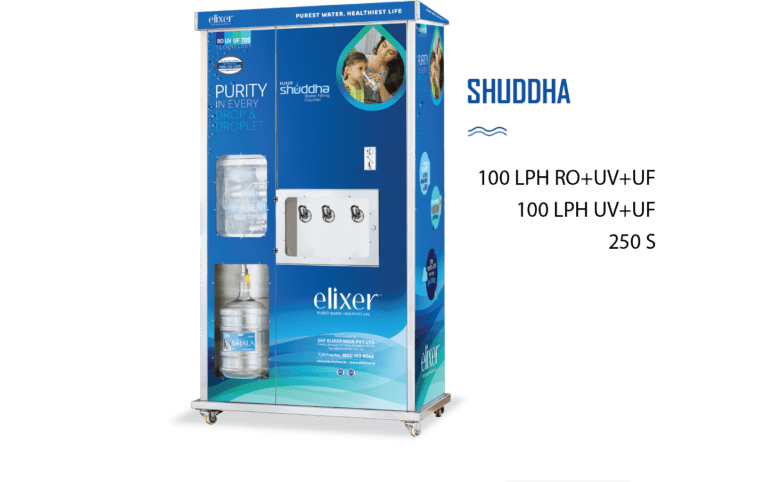Table of Contents
In the bustling heart of the food processing industry, water is a critical ingredient shaping every product’s quality and safety. From rinsing raw materials to steaming grains and blending beverages, clean water is the backbone of operations.
Contaminated water that is laden with bacteria, heavy metals, or high TDS, threatens food safety and water quality, risking consumer health and regulatory penalties. A water filtration for food industry system ensures contaminant-free water in manufacturing, safeguarding products and businesses. For factory owners, quality managers, and compliance officers, investing in industrial water purifier systems not only meets water standards for food processing but also saves money annually.
This blog explores why food processing industries need water filtration systems, the benefits of water purification in food manufacturing, and practical steps to implement food processing water treatment for success.
India’s food processing sector, valued at ₹25 lakh crore, produces everything from packaged snacks to dairy and beverages, using 500-5,000 litres of water per tonne of product. Tap water, often with TDS of 500-2,000 ppm or microbial contaminants, fails to meet Bureau of Indian Standards (BIS) and Food Safety and Standards Authority of India (FSSAI) requirements (TDS <150 ppm, zero pathogens).
Contaminated water leads to product spoilage, health risks affecting 37 million Indians yearly, and fines of ₹50,000-₹5 lakh for non-compliance. Water purification systems deliver clean water in food production, reducing risks and enabling safe water practices in food production facilities. By installing a food processing water treatment system, businesses protect consumers, cut costs, and enhance sustainability. Let’s uncover how water quality affects food processing operations and why filtration is essential.
- Ensuring Food Safety
Food safety and water quality are paramount as water used in rinsing, cooking, or blending must be free of bacteria, viruses, and heavy metals. Contaminated water causes 30-40% of foodborne illnesses.- Impact: Contaminant-free water in manufacturing prevents recalls, saving ₹1-5 lakh per incident.
- Regulatory Compliance
FSSAI and BIS mandate water standards for food processing (e.g., TDS <150 ppm, pH 6.5-8.5). Non-compliance risks fines of ₹50,000-₹5 lakh and production halts.- Impact: Ensures legal operations.
- Product Quality and Consistency
How water quality affects food processing operations with high TDS or impurities alter taste, texture, and shelf life of products like beverages or noodles. Purified water ensures consistent quality.- Impact: Enhances brand reputation, adding ₹1-10 lakh in sales.
- Equipment Protection
Hard water (TDS >500 ppm) damages boilers, pipes, and mixers, costing ₹50,000-₹3 lakh yearly in repairs. Filtered water extends equipment life by 30-50%.- Impact: Reduces maintenance costs.
These benefits of water purification in food manufacturing make filtration non-negotiable.
Food processing water treatment systems use multi-stage filtration to deliver clean water in food production:
- Pre-Filtration: Sediment filters remove dirt and sand (changed every 3-6 months).
- Reverse Osmosis (RO): Reduces TDS to 50-150 ppm, removing 99% contaminants.
- Ultraviolet (UV)/Ultrafiltration (UF): Kills bacteria and filters fine particles.
- Carbon Filtration: Enhances taste, removing odors.
- Sand Media: Filters large impurities for high-volume processing.
- Monitoring: IoT sensors track TDS/pH, ensuring water standards for food processing.
For instance, a spice factory’s 1,000-litre/hour industrial water purifier can purify 10,000 litres daily, meeting FSSAI standards, showcasing water filtration for food industry efficiency.
Implementing water purification systems faces hurdles:
- High Initial Costs: ₹1-10 lakh for setup strains budgets.
- Solution: Start with smaller systems (₹1-5 lakh) and scale up.
- Space Constraints: Factories may lack room.
- Solution: Use compact stainless steel units (2-5 sq. meters).
- Maintenance Needs: Regular filter changes and checks (₹50,000-₹2 lakh yearly).
- Solution: Train staff (₹10,000) and automate monitoring.
- Water Source Variability: High TDS or pollution requires tailored systems.
- Solution: Test water to customize filtration.
How to choose a water filtration system for a food processing facility involves:
- Capacity: Match to demand (e.g., 10 tonnes/day snack production needs 5,000-10,000 litres/day, requiring 500-1,000 litres/hour).
- Water Source: High TDS (500-2,000 ppm) needs RO+UV; moderate (200-500 ppm) suits UV+UF.
- Compliance: Ensure BIS/FSSAI certification to avoid fines.
- Maintenance and Support: Select vendors with local service and 1-2 year warranties. Budget ₹50,000-₹2 lakh yearly upkeep.
- Features: Opt for automation and reuse capabilities for efficiency.
Steps to Install a Water Filtration Plant
Ready for food processing water treatment? Follow these steps:
- Assess Water Demand: Estimate usage (500-5,000 litres/tonne of product, e.g., 10 KLD for 5 tonnes/day).
- Test Water Source: Analyze TDS/microbes to select RO/UV/UF.
- Choose System: Opt for 100-1,000 litre/hour industrial water purifier.
- Select Vendor: Partner with BIS-certified suppliers like SKF Elixer India Pvt. Ltd.
- Budget: Plan ₹1-15 lakh setup, ₹50,000-₹2 lakh yearly maintenance.
Conclusion
Water filtration for food industry is a must for India’s food processing sector, ensuring food safety and water quality, compliance, and savings of ₹50,000-₹10 lakh yearly. By addressing how water quality affects food processing operations, water purification systems protect consumers and enhance efficiency.
SKF Elixer India Pvt. Ltd. offers tailored industrial water purifier solutions, delivering contaminant-free water in manufacturing for snacks, dairy, and beverages. Their systems meet BIS/FSSAI standards. Contact SKF Elixer today to secure safe water practices in food production facilities and elevate your food processing operations.
FAQs
Q1: Why do food processing industries need water filtration systems?
To ensure food safety and water quality, meet FSSAI/BIS water standards for food processing, and avoid ₹50,000-₹5 lakh fines.
Q2: What are the benefits of water purification in food manufacturing?
Saves ₹50,000-₹10 lakh yearly, ensures contaminant-free water in manufacturing, extends equipment life, and boosts product quality.
Q3: How does water quality affect food processing operations?
High TDS or contaminants alter taste, reduce shelf life, and risk recalls, costing ₹1-5 lakh, requiring clean water in food production.
Q4: What are safe water practices in food production facilities?
Use RO/UV water purification systems, test water regularly, and maintain systems.
Q5: What is the best water filtration system for food processing?
SKF Elixer’s industrial water purifier (100-1,000 litres/hour) with RO+UV and automation ensures BIS-compliant water filtration for food industry, saving ₹1-5 lakh yearly.
Good reads are meant to be shared









